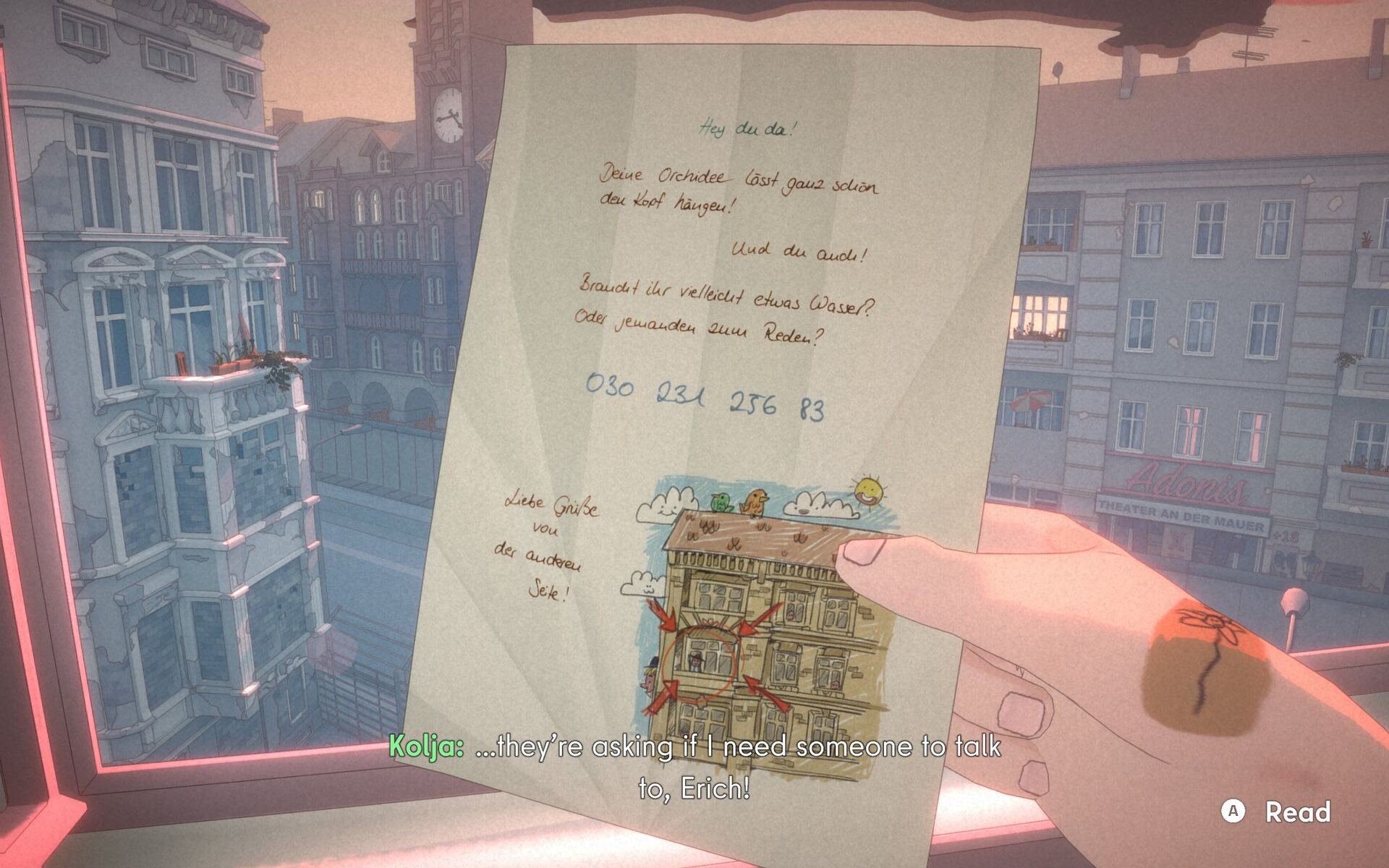Review | The Berlin Apartment - Over the Wall
Berlin is a city deeply fractured by the events of the 20th century. The scars of two world wars run deep in its very bricks and mortar, from arsoned Jewish businesses to bombed tower blocks and the physical split of the city in two. In The Berlin Apartment, developer Blue Backpack Games shines a light on this history through the lens of five ordinary residents of the same apartment over the course of 100 years.
The Berlin Apartment is what some people would call a walking sim: from a first-person perspective, you explore the apartment across different eras, interacting with the environment in ways that propel the narrative over the course of 4-5 hours. You uncover the story through four vignettes — the developer refers to them as short stories — as recounted by Dilara and her dad Malik. It is 2020, and Malik is renovating the apartment for new tenants whilst Dilara, whom you play as, roams the rooms fascinated by the flat’s sheer size and the secrets hidden behind its cracked tiles and stripped wallpaper.
The discovery of an illustrated letter that was originally sent in 1989, for example, leads Dilara to plead with her father to imagine the story behind it. Playing along, he recounts the tale of Kolja — a botanist living alone in East Berlin — and we leap into his shoes to experience it firsthand.
It’s difficult to discuss these vignettes without spoiling them. The narrative is definitely the draw here, and personally I find the stories provide fascinating insights into a city that can seem so different from the modern German capital. Kolja’s existence eating Solyanka soup and dreaming of life across the wall takes place within my own lifetime and yet is representative of a time and way of living that seems almost alien to our modern sensibilities and understanding of the world.
As the stories reach further back in time, darker themes present themselves. My favourite of the chapters is about Josef. He is an elderly Jewish cinema-owner being forced out of the apartment by angry neighbours with the auxiliary police on his tail. Recounting his life and the turn it took as you find and pack away a lifetime’s worth of treasures away in a suitcase was genuinely moving, and I think the gameplay mechanics enhance the experience. Josef is slow and lumbering, and his own memories bring you deeper into his history with a style and flair that stuck with me. Rotating artefacts to fit into a suitcase, Resident Evil–style, whilst police knock at the door and rocks get thrown through your window is genuinely scary.
Other chapters aren’t as successful in my eyes. One, entitled Silent Night, touches upon equally dark and touching subject matter but fumbles the mechanics in a way that renders the experience frustrating. You play as a young girl named Mathilda who is trying to spread festive cheer around the apartment on Christmas Day, 1945. Much of the building is in ruin, and you collect broken plates and other objects to fashion into decorations around the room. Here it feels like the developer wanted to touch explicitly on the Second World War but didn’t have the story or gameplay ideas to justify it.
There are hints of good ideas, sure. Mathilda discovering a plate branded “Fuhrer” and deeming it a potential festive decoration is a morbid juxtaposition of war and childhood innocence. Later, you have the option to ask your mother if you are the bad guys and if your unseen father, revealed to be a soldier, is really a hero. But these ideas are expressed mechanically by merely hovering over and clicking on parts of the environment to see if it’s the correct place to hang a decoration. I spent more time than I care to admit trying to find the last spot to hang something, by which time I just wanted the chapter to end. And it did, without really going anywhere.
Trying to balance gameplay mechanics in a narrative-heavy game isn’t a problem unique to The Berlin Apartment, though, and despite these frustrations, the scales don’t tip too far over in one direction for my tastes. In fact, there are mechanical and presentation switch-ups that generally surprised me with how ambitious they were for the scope of the game. Again, it’s so difficult to explain without spoiling the experience, but I will say the final chapter of the game shocked me with how it unfolded.
Ultimately, I enjoyed my time in The Berlin Apartment. It is a simple game that sometimes takes big leaps that don’t always stick the landing, but it largely kept my attention. It paints a vivid world that I enjoyed spending time in and shows glimpses of ambition that have me keen to see what Blue Backpack does next.









